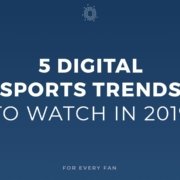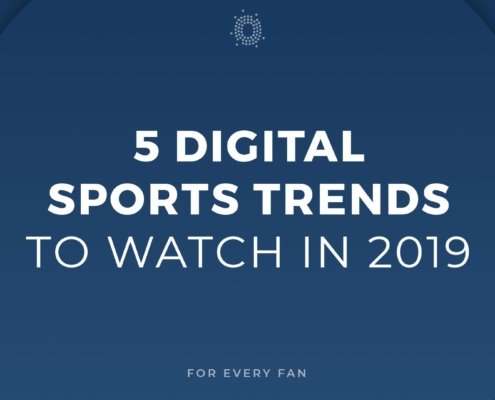InCrowd Welcomes Simon Thomas as Chairman
With significant growth in the UK and International markets in the last three years, InCrowd has appointed Simon Thomas, as Chairman of its Board of Directors. A leader in the evolution of commercial sports marketing during his time at TEAM Marketing, FIFA and Fox, Thomas will guide the Board and shareholders, whilst offering strategic advice and support to the senior management team.
“We are absolutely thrilled that Simon has agreed to join InCrowd as Chairman. His appointment adds to a number of new senior executive appointments we have made in the past year. The level of experience that Simon brings both in terms of his standing in the industry and as a specialist in organisational transformation and development, should turbo-charge our next phase of growth across multiple new territories .”
Thomas adds, “I have great respect for Aidan; as the founder of Opta Sports, he has a great track record and enormous experience in this area. At InCrowd he has built a strong team and the progression of the business in just 6 years is impressive. Product innovation to crack the digital challenge is paramount, along with client success and the creation of strong and trusted relationships. It’s an exciting era for the business and I’m very happy to join the team.”
Over the last 18 months, sport has seen a distinct acceleration in its digital transformation, as organisations realise the importance of truly knowing, connecting and engaging with fans on a deeper and personalised level through better use of first party data and premium fan facing platforms.
In response to this, InCrowd chose to focus on product development, ideating, building and delivering new and innovative solutions to respond to the rapidly changing requirements of clients and their commercial partners. Over the last 2 years, InCrowd has almost doubled in size to over one hundred team members, with 65% of the workforce focussed on R&D.
At the heart of InCrowd’s product innovation is their Customer Data and Experience Platform (CDXP), Bridge, a “one stop shop” for querying and using customer data to create personalised fan experiences across digital platforms via a best in class headless CMS and direct to fan content, messaging and engagement tools, all analysed across a range of tailored reporting suites.
“The very foundation of our business lies in our belief that fans are your greatest asset and that creating great digital experiences through high-quality fan facing platforms, data driven content & messaging and innovative activations is the most effective way to drive swift ROI.” says Cooney. “We empower clients to be bold in their digital and data transformations and support them fully at every stage of their journey. These are the organisations that are now reaping the rewards and we’re excited to help others reach their full potential.”
Thomas agrees;
“We are in an era of digital disruption, and clearly the industry is moving towards greater and more effective use of data. InCrowd are market leaders in this space. Everyone’s talking about the need to connect directly with fans and consumers, but at the moment it seems to be more talk than action. InCrowd are actually making things happen, facilitating monumental digital changes for their clients and demonstrating tangible returns, which is one of the things that sets them apart.”
About Simon Thomas
A sports industry veteran, Simon will take on the role of Chairman alongside his role of Partner at Colgan Bauer. An influential boutique firm, Colgan Bauer offers international sports strategy consultancy for many of the world’s top governing bodies, rights holders and investors. Prior to this, Simon was Chief Commercial Officer at FIFA, where he extensively restructured the digital and commercial teams. His further experience includes 15 years at TEAM Marketing, UEFA’s commercial agency for the development of UEFA Champions League and UEFA Europa League competitions in various roles culminating in Chief Executive Officer; and 3 years as EVP Global Sport and Content Sales at Fox where he acted on rights acquisitions for Fox Sports internationally and established a global content sales team selling entertainment, factual and sports content. Simon also established his own advisory agency, Talisman Sport & Media.
For more information, contact enquiries@incrowdsports.com









